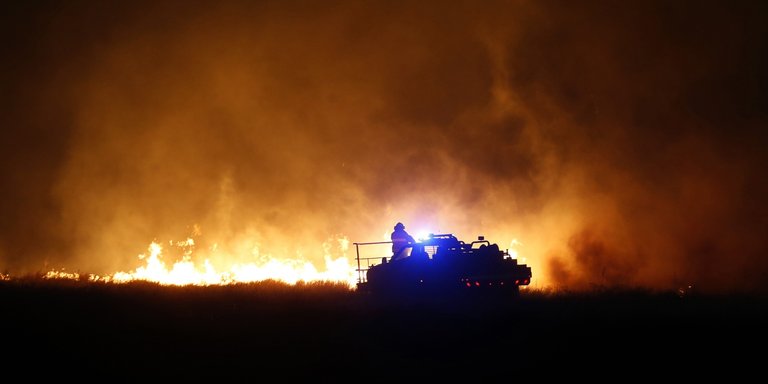During the presidential campaign, some imagined that the more overtly racist elements of Donald Trump’s platform were just talk designed to rile up the base, not anything he seriously intended to act on. But in his first week in office, when he imposed a travel ban on seven majority-Muslim countries, that comforting illusion disappeared fast. Fortunately, the response was immediate: the marches and rallies at airports, the impromptu taxi strikes, the lawyers and local politicians intervening, the judges ruling the bans illegal.

The whole episode showed the power of resistance, and of judicial courage, and there was much to celebrate. Some have even concluded that this early slap down chastened Trump, and that he is now committed to a more reasonable, conventional course.
That is a dangerous illusion.
It is true that many of the more radical items on this administration’s wish list have yet to be realized. But make no mistake, the full agenda is still there, lying in wait. And there is one thing that could unleash it all: a large-scale crisis.
Large-scale shocks are frequently harnessed to ram through despised pro-corporate and anti-democratic policies that would never have been feasible in normal times. It’s a phenomenon I have previously called the “Shock Doctrine,” and we have seen it happen again and again over the decades, from Chile in the aftermath of Augusto Pinochet’s coup to New Orleans after Hurricane Katrina.
And we have seen it happen recently, well before Trump, in U.S. cities including Detroit and Flint, where looming municipal bankruptcy became the pretext for dissolving local democracy and appointing “emergency managers” who waged war on public services and public education. It is unfolding right now in Puerto Rico, where the ongoing debt crisis has been used to install the unaccountable “Financial Oversight and Management Board,” an enforcement mechanism for harsh austerity measures, including cuts to pensions and waves of school closures. This tactic is being deployed in Brazil, where the highly questionable impeachment of President Dilma Rousseff in 2016 was followed by the installation of an unelected, zealously pro-business regime that has frozen public spending for the next 20 years, imposed punishing austerity, and begun selling off airports, power stations, and other public assets in a frenzy of privatization.
As Milton Friedman wrote long ago, “Only a crisis — actual or perceived — produces real change. When that crisis occurs, the actions that are taken depend on the ideas that are lying around. That, I believe, is our basic function: to develop alternatives to existing policies, to keep them alive and available until the politically impossible becomes politically inevitable.” Survivalists stockpile canned goods and water in preparation for major disasters; these guys stockpile spectacularly anti-democratic ideas.
Now, as many have observed, the pattern is repeating under Trump. On the campaign trail, he did not tell his adoring crowds that he would cut funds for meals-on-wheels, or admit that he was going to try to take health insurance away from millions of Americans, or that he planned to grant every item on Goldman Sachs’ wish list. He said the very opposite.
Since taking office, however, Donald Trump has never allowed the atmosphere of chaos and crisis to let up. Some of the chaos, like the Russia investigations, has been foisted upon him or is simply the result of incompetence, but much appears to be deliberately created. Either way, while we are distracted by (and addicted to) the Trump Show, clicking on and gasping at marital hand-slaps and mysterious orbs, the quiet, methodical work of redistributing wealth upward proceeds apace.
This is also aided by the sheer velocity of change. Witnessing the tsunami of executive orders during Trump’s first 100 days, it rapidly became clear his advisers were following Machiavelli’s advice in “The Prince”: “Injuries ought to be done all at one time, so that, being tasted less, they offend less.” The logic is straightforward enough. People can develop responses to sequential or gradual change. But if dozens of changes come from all directions at once, the hope is that populations will rapidly become exhausted and overwhelmed, and will ultimately swallow their bitter medicine.
But here’s the thing. All of this is shock doctrine lite; it’s the most that Trump can pull off under cover of the shocks he is generating himself. And as much as this needs to be exposed and resisted, we also need to focus on what this administration will do when they have a real external shock to exploit. Maybe it will be an economic crash like the 2008 subprime mortgage crisis. Maybe a natural disaster like Superstorm Sandy. Or maybe it will be a horrific terrorist attack like the Manchester bombing. Any one such crisis could trigger a very rapid shift in political conditions, making what currently seems unlikely suddenly appear inevitable.
So let’s consider a few categories of possible shocks, and how they might be harnessed to start ticking off items on Trump’s toxic to-do list.
Hi! I am a robot. I just upvoted you! I found similar content that readers might be interested in:
https://www.investorvillage.com/smbd.asp?mb=4245&mn=995127&pt=msg&mid=17246391
Congratulations @samitm! You received a personal award!
You can view your badges on your Steem Board and compare to others on the Steem Ranking
Do not miss the last post from @steemitboard:
Vote for @Steemitboard as a witness to get one more award and increased upvotes!